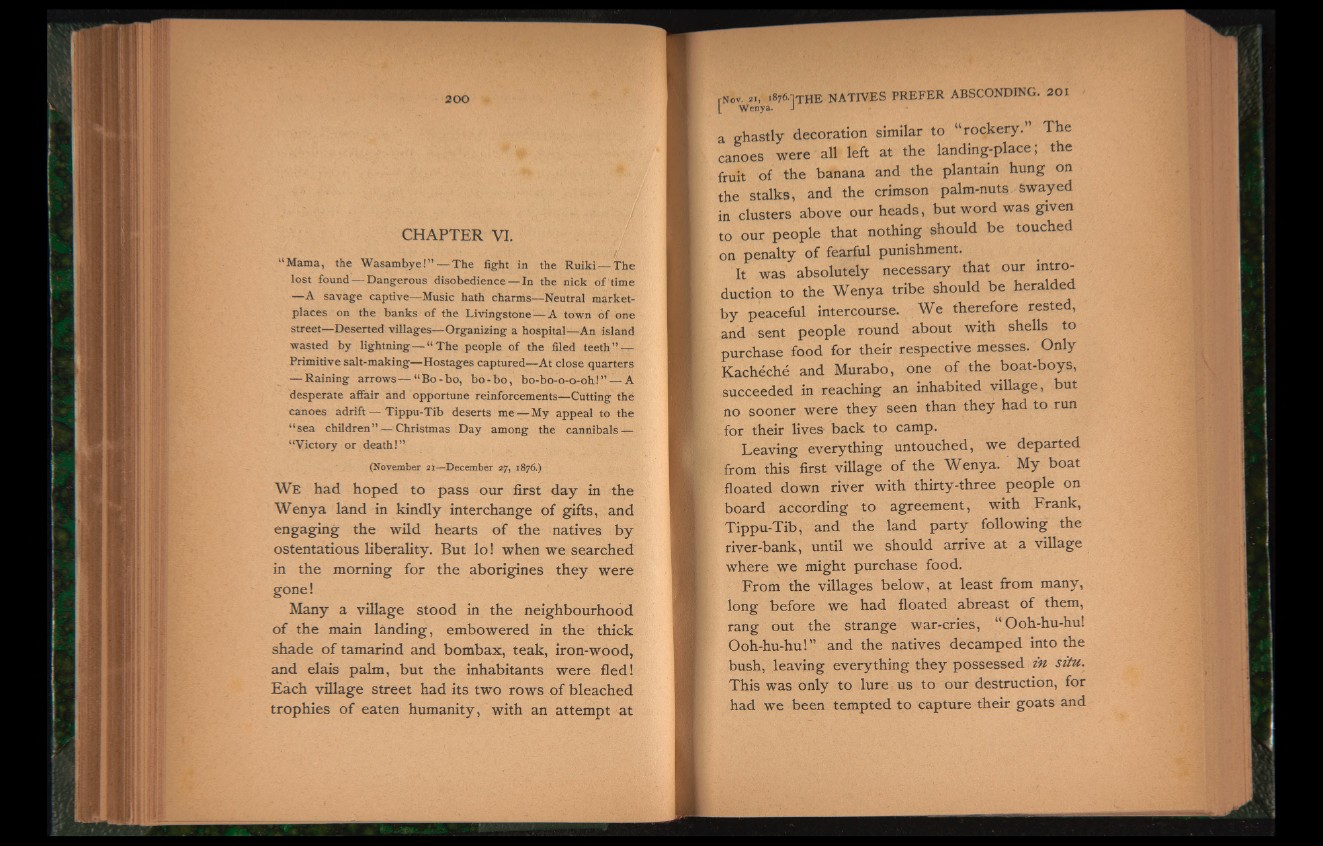
CHAPTER VI.
“ Mama, the Wasambye!” — The fight In the Ruiki — The
lost found — Dangerous disobedience— In the nick of time
— A savage captive—Music hath charms—Neutral marketplaces
on the banks of the Livingstone — A town of one
street— Deserted villages— Organizing a hospital— An island
wasted by lightning— “ The people of the filed teeth” —
Primitive salt-making— Hostages captured—At close quarters
— Raining arrows— “ Bo-bo, bo-bo, bo-bo-o-o-oh ! ” — A
desperate affair and opportune reinforcements—Cutting thé
canoes adrift — Tippu-Tib deserts me — My appeal to the
“ sea children” — Christmas Day among the cannibals —
“Victory or death!”
(November 21—December 27, 1876.)
We had hoped to pass our first day in the
Wenya land in kindly interchange of gifts, and
engaging the wild hearts of the natives by
ostentatious liberality. But lo ! when we searched
in the morning for the aborigines they were
gone!
Many a village stood in the neighbourhood
of the main landing, embowered in the thick
shade of tamarind and bombax, teak, iron-wood,
and elais palm, but the inhabitants were fled!
Each village street had its two rows of bleached
trophies of eaten humanity, with an attempt at
rNov. 31, 1876.-|THE NATIVES PREFER ABSCONDING. 201 L Wenya. J
a ghastly decoration similar to “ rockery.” The
canoes were all left at the landing-place; the
fruit of the banana and the plantain hung on
the stalks, and the crimson palm-nuts Swayed
in clusters above our heads, but word was given
to our people that nothing should be touched
on penalty of fearful punishment.
It was absolutely necessary that our introduction
to the Wenya tribe should be heralded
by peaceful intercourse. We therefore rested,
and sent people round about with shells to
purchase food for their respective messes. Only
Kacheche and Murabo, one of the boat-boys,
succeeded in reaching an inhabited village, but
no sooner were they seen than they had to run
for their lives back to camp.
Leaving everything untouched, we departed
from this first village of the Wenya. My boat
floated down river with thirty-three people on
board according to agreement, with Frank,
Tippu-Tib, and the land party following the
river-bank, until we should arrive at a village
where we might purchase food.
From the villages below, at least from many,
long before we had floated abreast of them,
rang out the strange war-cries, “ Ooh-hu-hu!
Ooh-hu-hu!” and the natives decamped into the
bush, leaving everything they possessed in situ.
This was only to lure us to our destruction, for
had we been tempted to capture their goats and